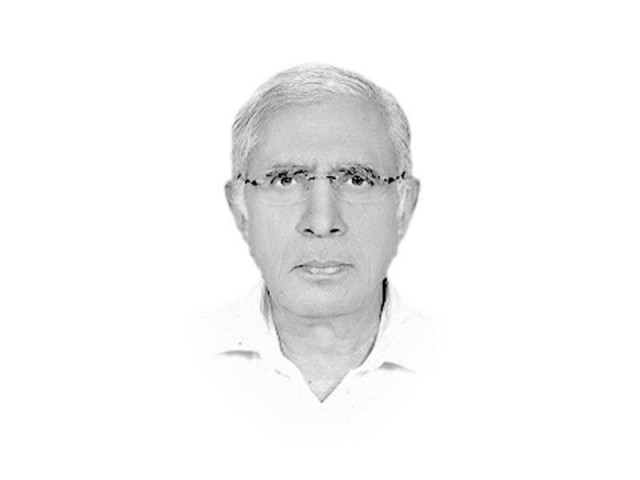Taliban in disarray?
Several factions within the Taliban are vying for power

The writer served as Executive Editor of The Express Tribune from 2009 to 2014
Islamabad’s latest Afghan policy that had curtailed the ability of the Taliban leadership to stop Pakistan from expelling Afghan refugees is said to have created this space by exerting an extra pressure on the Taliban. Though the study does not credit Pakistan for building on its own the enabling circumstances for creating expanded space for Afghan peace talks with its Zarb-e-Azb mission which did not discriminate between Pakistan-friendly Taliban and those that nursed hostility towards Islamabad but one felt a sense of it being so while going through the study’s briefing paper. The authors of the study in question (Ready For Peace? Taliban after a decade of war), are Theo Farrell and Michael Semple. In November 2016, the authors held discussions with seven well-connected Taliban figures representing different constituencies within the movement. The context for these discussions was first the failure of existing mechanisms the quadrilateral process in Pakistan and the Taliban Political Commission in Qatar — to deliver negotiations, and secondly reports that the new Taliban emir, Maulvi Haibatullah Akhundzada, had failed to exert his authority.
The purpose of the authors was to explore the new Taliban leadership landscape and the potential for restarting peace talks. The method centred on lengthy and iterative one-to-one interviews. The interviews were conducted in Pashto and Dari and translated into English. One of the interviewees was mandated to participate by his peers, while the others chose to be involved. All referenced their peer group and contacts within the movement.
This investigation has strong implications for both the analysis of the Taliban movement and the policy response to the Afghan conflict. In terms of policy, the findings suggest that a strategy of engagement with the Taliban’s unitary official leadership may not be sufficient to achieve a deal. But the emergence of dissent within the movement offers both a threat and an opportunity for peacemaking. Arguably, the main beneficiary so far from the breakdown in Taliban cohesiveness has been ISIL-K, which has recruited Taliban dissidents. In contrast, a strategy of insurgent peacemaking would instead channel dissent within the Taliban movement towards an incremental peace settlement.
The briefing paper argues that: The Taliban movement is in disarray. The new leader, Maulvi Haibatullah Akhundzada, is viewed as ineffective.
Several factions within the Taliban are vying for power. The Mansoor network, which claims to be backed by Iran and Russia, has risen to become the most dynamic group within the Taliban. The levels of morale within the Taliban vary. The boost to morale from 2016 battlefield successes was dampened by the high cost at which they were gained, as well as the alienation of many Taliban from their leadership and the sense that many had no stake in those battlefield gains. The expulsion of Afghan refugees from Pakistan is putting added pressure on the Taliban. There is growing disaffection within the Taliban about the armed campaign. Many Taliban feel that the war has lost direction and purpose, and is corrupting the movement. A new approach to peace talks is needed. This would harness and mobilise the large numbers of disaffected Taliban, in order to get around the leadership’s stonewalling.
These developments within the Taliban present an opportunity for ‘insurgent peacemaking’. The collapse of leadership authority under Haibatullah, the resurgence of factionalism and rise of the Mansoor network, and the powerlessness of the Taliban leadership to stop Pakistan from expelling Afghan refugees, have expanded the political space available to pro-peace insurgent Taliban.
Published in The Express Tribune, February 4th, 2017.
Like Opinion & Editorial on Facebook, follow @ETOpEd on Twitter to receive all updates on all our daily pieces.














COMMENTS
Comments are moderated and generally will be posted if they are on-topic and not abusive.
For more information, please see our Comments FAQ